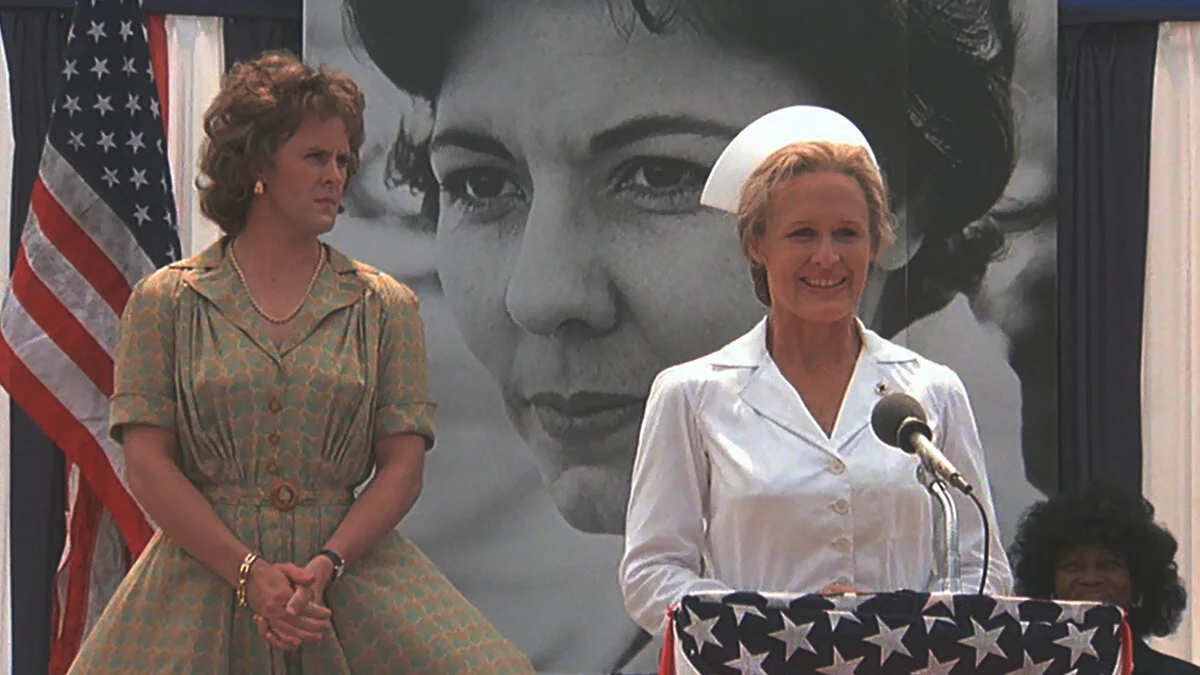Directed by George Roy Hill with Robin Williams, Glenn Close, and John Lithgow. Adapted from John Irving’s novel of the same title.
“You know, everybody dies. My parents died. Your father died. Everybody dies. I'm going to die too. So will you. The thing is, to have a life before we die. It can be a real adventure having a life.”
Well, I reckon that I’m glad that I finally watched this movie that I’ve been hearing about for years. It was an entertaining romp – charming, whimsical, dark, and full of foreshadowing. Glen Close and Robin Williams probably get more attention for their lead roles, but if it weren’t for John Lithgow in his role as a trans woman this film would not be nearly as interesting. After watching it, I thought about Dustin Hoffman’s cross-dressing character in the film Tootsie, which I loved as a kid, and which, incidentally, was also released in 1982. I'm no women’s studies scholar, but I do think it is interesting that these two well-loved films, released in the same year, present feminist ideas to main-stream audiences with a dose of humor. A spoonful of sugar, you know.






